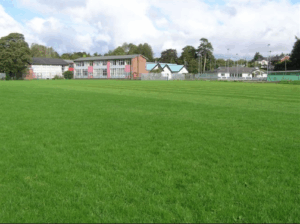A few weeks back RTE Sunday Game pundit and Cork hurling legend Donal Óg Cusack sparked off a wave of discussion, debate and derision in equal measure, with his suggestion that Ulster field a composite team in the Liam McCarthy Cup.
To be fair to Donal Óg he was only restating a position already articulated by the GPA, of which he is a prominent member. But. . . anyone that uses words the three words ‘promote’, ‘hurling’ and ‘Ulster’ in the same sentence can expect everything they get from the local hurling cognoscenti.
One of the arguments for the idea was that a combined team would help promote the game of hurling in the province. Currently only Antrim play at the tope level in hurling and despite Loughgiel’s clubs success the county team are struggling to make their mark at that level.
The idea is that a regional team would draw upon hurlers from the likes of Down, Derry, Armagh, Tyrone, Donegal and Down to field a combined squad at Liam McCarthy level. Depending on what model you ascribe to, Antrim would continue to go it alone or would joint the Ulster pack. Supporters of the idea point at the abysmal record of Antrim county teams at minor, u21 and senior level when they venture south.
Given Ulster hurling’s relative isolation in geographical terms it is always going to be hard to get consistent competitive action against quality opposition under the current format
But, it’s not that long ago that Derry’s hurlers performed creditably in taking consecutive Ulster Under 21 titles and travelling south to take on a Tipp side littered with current senior players, and a Dublin team that contained several of the personnel currently making waves in the 2013 championship.
Amidst Dublin’s recent success we shouldn’t lose sight of the massive injection of funding for coaching and other support that the GAA contributed. Their march to the Leinster title and a second All Ireland semi final in three seasons hasn’t been accidental.
It goes without saying – if you invest in something it will grow. There are lessons there for those that would use those three words: ‘promote + hurling + Ulster.’
Hurling needs more coaches and more teams. In Derry we have seen clubs spring up in Roe Valley and Castledawson to augment the eight already in place. There are still major centres of population in the county that have no hurling club. And there are major clubs that have no hurling. And there are major figures in the GAA locally that have no interest. These are facts. In Cork there are over 100 hurling clubs, many operating multiple teams at different grades. How can we complete with that?
It is a feature of hurling nationally that unless there is some sort of serious intervention, the rich will get richer and the poorer stay where they are. There are hierarchies in hurling and the unique nature of the game means it is harder to develop than football.
Within Ulster Antrim are the strongest county but they have their own sorrows to seek. Hurling is under pressure in Belfast. Currently in the senior championship Loughgiel have two maybe three realistic challengers in Cushendall, Dunloy and an emerging St John’s team from Belfast City. Other clubs in the city are having difficulty holding players and others are struggling to field.
It does not bode well for the long-term development of the game. The question is if we adopt Donal Óg’s idea, would the local supporters swing behind a provincial team in the way the rugby supporters have supported the Ulster Rugby team. Is it time to Stand up for the Ulster men in hurling as well as rugby. The same two sports are the big passion in the likes of Cork and Limerick.
Is it an idea that we need to try for a pilot period before we dismiss it out of hand? The GPA , Donal Óg and co seem to think so. Others are less convinced and some local hurling men are totally and implacably opposed.
The fact remains, this weekend four Ulster football teams take part in the All Ireland senior football championship quarter finals. It is difficult to imagine the day when even one Ulster team will contest an All Ireland hurling quarter final. Maybe, just maybe that Ulster team will have to be an Ulster team.
One thing’s for sure, if Ulster says no, we’ll never know.

